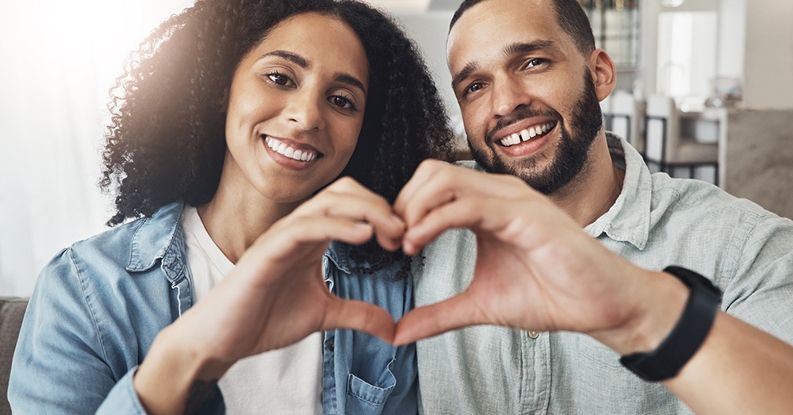The Power of Sleep and How to Make It Work for You
- Category: Southwest General Medical Group, Neurosciences, Behavioral Health, Women's Health, General Health, Family Medicine, Endocrinology, Diabetes & Metabolism, Geriatric Medicine, Heart & Vascular Care, Men's Health
- Posted On:

You probably already know that getting a good night’s sleep is important. However, between packed schedules, late-night scrolling and maybe even the occasional binge-watch, sleep often becomes the first thing we’re willing to cut short. The truth is, skimping on sleep doesn’t just make you groggy; it can quietly affect your entire well-being.
Why Sleep Matters So Much
Think of sleep as your body’s nightly tune-up. While you’re off in dreamland, your brain is busy organizing memories, processing emotions and flushing out toxins. Your body, meanwhile, is repairing cells, balancing hormones and restoring energy.
When you get quality sleep:
- You think more clearly and make better decisions
- Your mood is steadier
- You’re less likely to get sick
- Your risk for chronic conditions such as heart disease and diabetes decreases
- You just feel better, plain and simple
It’s not just about quantity. The quality of your sleep—how deeply and restfully you’re sleeping—matters just as much.
How Much Sleep Do You Actually Need?
Most adults need seven to nine hours of sleep each night. Some people feel great on seven hours, but others need closer to nine hours to feel truly rested. Older adults (aged 65+) can usually do well with between seven and eight hours of sleep.
Sleep needs also vary depending on your lifestyle, stress levels and overall health. If you’re waking up tired, reaching for caffeine all day or crashing on the couch by dinnertime, your body may be telling you it’s not getting the rest it needs.
What Happens When You Don’t Get Enough Sleep?
Missing out on sleep doesn’t just make you cranky—it can cause a domino effect throughout your body. Here’s what you’re at risk for by not getting enough sleep:
- Cognitive issues: Trouble focusing, remembering things or making decisions
- Mood swings: Irritability, anxiety and even symptoms of depression
- Immune struggles: You might get sick more often and stay sick longer
- Higher health risks: Including high blood pressure, weight gain and blood sugar issues
- Safety concerns: Drowsy driving is no joke—it’s been compared to driving under the influence
Long-term sleep deprivation can take a serious toll. This is often called 'sleep debt,' a cumulative effect of insufficient sleep. However, the good news is that better sleep is within reach.
Tried-and-True Tips for Better Sleep
Let’s face it—no single magic trick guarantees perfect sleep. However, building a few healthy habits into your day (and night) can go a long way toward helping you fall asleep faster, stay asleep longer, and feel more rested in the morning.
Here are some practical shifts that can genuinely make a difference:
- Rethink the afternoon nap: If you struggle to sleep at night, those afternoon power naps might be working against you. While a short nap now and then is okay for some people, sleeping too long during the day, especially in the late afternoon, can throw off your nighttime sleep cycle.
- Be mindful of what and when you eat and drink: Try to keep meals on a regular schedule, and avoid eating too close to bedtime. Late-night dinners or heavy snacks can make it harder to fall asleep. Skip caffeine, nicotine and alcohol in the evening, too. All three can interfere with deep, restful sleep—even if they initially make you feel relaxed.
- Move your body, just not right before bed: Daily physical activity can help you fall asleep faster and enjoy deeper rest. Just try to finish any vigorous workouts at least five to six hours before bedtime. Exercising too late in the day can leave you feeling energized when you’re trying to unwind.
- Make your bedroom a restful retreat: Your sleep environment matters more than you think. Keep the room cool, dark and quiet. Reserve the bed for sleep and intimacy only. That means no scrolling through your phone or watching TV under the covers.
- Stick to a routine: Our bodies thrive on rhythm. Try to go to bed and wake up around the same time every day, even on weekends. Sleeping in on your day off may be tempting however, keeping a consistent schedule helps regulate your internal clock, making it easier to fall asleep naturally.
- Watch your fluids in the evening: Waking up, at 2 a.m., to use the bathroom? You’re not alone. Try to taper your fluid intake an hour or two before bed so you can sleep through the night without interruptions.
- De-stress your evenings: Stress and racing thoughts are some of the biggest sleep disruptors. Establish a calming pre-bedtime routine that signals to your brain it’s time to relax. This could be a warm bath, journaling, light reading or gentle stretches. If you prefer guided relaxation, meditation apps, yoga or soothing music can help ease you into sleep. And if you’re dealing with chronic stress or anxiety, therapies such as massage, acupuncture or speaking with a professional may be worth exploring.
- Check your medications: Believe it or not, some over-the-counter and prescription drugs, such as decongestants or certain allergy medications, can interfere with sleep. If you suspect this might be happening, talk to your healthcare provider about more sleep-friendly alternatives.
What’s Trending in the World of Sleep?
If you’ve ever scrolled through TikTok or Instagram, at 11 p.m., searching for ways to fall asleep faster … you’re not alone. Sleep trends are everywhere. Here are a few that are getting attention—and what we actually know about them:
- Blue light–blocking devices: Exposure to blue light from phones, tablets and TVs can delay melatonin production, making it harder to fall asleep. Blue light–blocking glasses, screen filters and even built-in “night modes” on devices are designed to reduce that exposure. While they’re not a magic fix, they can be helpful, especially if screen time is part of your wind-down routine
- Smart pillows: These high-tech pillows do more than cradle your head. Some track your sleep, adjust firmness throughout the night or even gently wake you up with built-in vibrations. While the comfort factor can certainly help, research is still in its early stages. If you’re curious, look for one with solid reviews, and combine it with healthy habits for best results.
- Mouth taping: Yes, it’s exactly what it sounds like—taping your lips shut to encourage nose breathing while you sleep. The idea is that nose breathing may reduce snoring and improve oxygen levels. Some people swear by it. However, it’s not for everyone (especially if you have sleep apnea, allergies or nasal congestion). Talk to your healthcare provider before giving this a try.
- Tart cherry juice and the “sleepy girl mocktail”: Tart cherry juice has become a favorite among sleep seekers because it naturally contains melatonin. This hormone helps regulate your sleep-wake cycle. Some small studies suggest it may help you fall asleep faster and stay asleep longer. Building on that, social media brought us the now-viral “Sleepy Girl Mocktail”—a nighttime drink made with tart cherry juice, magnesium powder (usually in the form of a supplement such as CALM) and a splash of sparkling water. Fans claim it helps them unwind and drift off more easily.
While there isn’t much research yet on the mocktail itself, the ingredients are generally safe for most people and can support relaxation. Just keep in mind: it’s not a miracle sleep cure. However, if you enjoy it, and it helps you feel calm at night, go for it!
- Sleep tracking devices: Wearables such as the Oura Ring, smartwatches and even some phone apps gather sleep data such as heart rate, body temperature, movement and time spent in different sleep stages. While these tools won’t directly improve your sleep, they can help you notice trends, such as how late meals, stress or bedtime routines affect your rest. Just be mindful not to overanalyze the numbers. Use the insights to guide healthy changes, not to stress yourself out.
What Doesn’t Work—At Least Not As Well As You Might Think
Not all sleep trends are backed by science. Here are a few that sound promising. However, they haven’t quite proven themselves yet, or might even make things worse:
- Taking melatonin every night: Melatonin supplements can be helpful in the short term, such as when you’re jet-lagged or adjusting to a new schedule. Taking it regularly can mess with your body’s own melatonin production. It’s best to use it sparingly and always at the lowest effective dose.
- Alcohol as a sleep aid: A glass of wine might make you sleepy; however, alcohol disrupts your sleep cycle and reduces deep sleep. That’s why you might fall asleep quickly and wake up groggy or wide-eyed at 3 a.m.
- Relying on sleep apps alone: They can be great tools, but are not a fix-all. If your environment, habits or stress levels are working against you, no app can fully counteract that. Use them as part of a bigger sleep strategy.
Final Thoughts: Sleep Is a Superpower You Can Strengthen
Getting better sleep doesn’t mean chasing every new trend. It starts with listening to your body, building a consistent routine and creating an environment that supports deep, restful sleep. Then, if you’re curious, sprinkle in a few smart tools—just make sure they work with your habits, not replacing them.
And remember: it’s never too late to start prioritizing sleep. Your brain, your body and your mood will thank you.
Talk to your primary care provider if you're struggling with sleep despite making changes. There may be underlying issues, such as sleep apnea or anxiety, that need medical attention.
Here’s to turning out the lights and waking up refreshed. Sleep well!



